|
Female Shawshank Redemption with vampires sounded cheekily, cheesily intriguing. Enough to override my initial reservations, because I don’t really care for vampire fiction, too trite, too clichéd, really the least interesting of monsters out there.
But, lo and behold, this turned out to be surprisingly good and neither cheeky nor, more importantly, cheesy. In fact, the author did the vampires just right, not glamour, no decadence, these exsanguinators are pure ancient evil and pure present danger. Their castle…a remote island prison for women, a building seemingly etched into its surroundings (rendered as perfectly darkly atmospheric as you’d expect from a scary story), one with a series of subterranean places you wouldn’t want to find yourself in. Well, you wouldn’t want to find yourself anywhere near that island in general and yet one wrongly accused, wrongly convicted woman does. This book is her journey as she slowly gets clued in the terrible and terrifying secrets of the prison and its Wardens. Will she survive? Will anyone? Read and find out. The story takes place in 1933 and the vampires in it by then are already experiencing the push of modernization, this prison was their attempt at adaptation to the ever changing world, but there are still difficulties with management. Can it be (gasp) an end of a very long era? But don’t pity them, these guys are an ancient nightmare that needs erasing. For all his evil, Warden Samuel Norton never considered drinking his inmates. So yeah, this was fun and quite well done. So much so I'm rounding up my rating in a feat of uncharacteristic generosity. Recommended for genre fans. Thanks Netgalley. Well, this turned out to be a pleasant surprise. I didn’t especially care for Finlay’s last (and my first of his) book, Every Last Fear, it was fine, but thoroughly mediocre as far as these ubiquitous thrillers go. When I decided to give this one a go I more of less expected the same sort of serviceable mediocrity, but Finlay (whoever he or she is) has really upped their game with this book.
It’s still very much what you’d expect from a thriller, from split perspectives, to cops and private persons involved in a tight three day race to solve a string of murders of teens, murders that somehow connect over 15 years. Is there a serial killer at play? Who can it be? Ooh aah…all sorts of suspense. And the best thing about it, is that Finlay leads you at this crazy dynamic pace to a genuinely unpredictable solution. It’s really one of the best things you can ask from a mystery thriller, a genre that, literally, lives and dies by its plot twists. And then you throw in genuinely good writing and engaging characters, including teens (yes, Finlay managed to write a really fascinating teen character, whose level of involvement in the case is one of the main themes, kudos to the author and the adult players are pretty good too, especially Ella, the only survivor of the original crimes who grows up to be a pretty messed up individual and, oddly enough, a therapist, a woman determined to deny her family’s copious wealth and make her own way in the world. There are a lot of good characters here…or are they good? Finlay plays with potential amorality and ambiguity nicely throughout. It’s lovely. All these lives interconnect in such complex and interesting ways and it all balances out for a satisfying resolution. So overall, a very good read, sure to delight genre fans. Very nice to see the author stepping up their game so assuredly. This one shines as neon bright as the cover. Recommended. Thanks Netgalley. I’m a fan of P. Djèlí Clark. I’ve read all of his tor.com published books thus far and enjoyed them. Not evenly, but considerably. This one, oddly billed as novella, (at 172 pages it’s definitely on the longer side of that), is more alongside his debut than his Dead Djinn Universe stories. Which is to say it is much more racially charged and Afrocentric.
Understandably so, not only if there a huge market for that right now, but also it is the author’s own heritage and his field of interest in real life, and if anyone can write a wildly entertaining morality tale on racism, it’s Clark. His recipe is taking human monsters of the whitehooded variety and turning them into literal ones and then throwing in some almost cosmic horror like elements and some magical fantasy like elements and a trio of kickass female warriors and the end result is pretty tasty. It’s seasoned with real life tragic elements of black history and some Gullah dialogue and mythology of the old continent. A lot, really, considering the page count restrictions, but Clark makes it work. He even manages to do the moral lesson (on the evils of hatred) right, not too heavy not too light, just right. There are even tentacles here, woohoo. So, overall, I’d say this book is a success. Did I enjoy it as much as I do his Dead Djinn stories…no, not really. Much like his debut, it didn’t quite work the same way for me. It’s too racially charged, too message oriented, for pure storytelling immersion. But if one was after a racially charged, message oriented story wrapped in speculative genre mash up…this is probably as close as one would get. Quick read too. Beneath the Stairs is an atmospheric suspense thriller with supernatural undertones. Right up my alley. And yet it turned out to be quite a peculiar reading experience, enjoyable throughout but somewhat unsatisfactory in the end. It’s as if the book didn’t quite hold up to the rear view introspection. All the ingredients were there, the writing was perfectly good, but (as this can be easily attributed to debut jitters) it leaned heavily toward excess in execution. Which is to say it was quite heavily overwritten and, if you consider it in its entirety, a lot of the plot aspects went underutilized. Obviously, it’s difficult to go into specifics without giving too much away, but…well, one can try.
So, once upon a time there was a small town and in it, well, on the outskirts of it, there was a strange house, an octagonal shaped house with dark history and murderous past that stood abandoned and, as such places do, absolutely irresistible to local kids. Some went in and saw something in the basement that terrified them and continued to call back to them for years and decades since. The main narrator, Clare, is one of those kids, now a grown woman, who comes back to her small town after finding out that her childhood friend went back to the basement and tried to commit suicide there. So yes, at its heart of hearts this is yet another one of those stories where the protagonist returns to their small town and its hidden evils after many years away. And yes, because it’s a thriller, it has the prerequisite time split narrative, where you can follow Clare as a teenager and as an adult. But then, because it’s also kinda sorta a horror story it also takes you back to different timelines with different narrators who have all had the distinct displeasure of staying at the Octagon House. And also, sometimes it takes you to a different narrator during present time. Which is all to say…too many cooks in the kitchen. The overall effect is busy. Too busy. To her credit, the author manages to juggle all those narrative balls, but it isn’t the easiest of tasks, because those balls are unbalanced. They work as individual self contained units, but when you consider them as a sum total, you realize that the past is simultaneously too drawn out and underplayed and in the end comes to a relatively minor haunting that has been blown out of proportion. The serial killer angle is all but buried in there. In fact, entirely too much of the story’s historical past has been sacrificed in favor of the formulaic present, including a romantic subplot and babies, babies, babies. Also, the ending…it’s just too freaking easy. Just puff and burn your worries away…after all that. Way too easy. Had this been streamlined, it might have made for either a compelling if clichéd thriller or a compelling if clichéd ghost tale. As is it’s kind of a mess. A very readable and mostly enjoyable mess, but one that doesn’t hold up to the scrutiny of retrospect. Not terrible overall by any means and certainly shows promise, just very overdone. Take the Orpheus approach here, go through it, enjoy, but don’t look back. Thanks Netgalley. Wow. Awesome. The cover states this is a thriller and sure enough, this book thrills. Mind you, thrillers are ubiquitous these days and most of them involve cheating and/or murderous spouses/bffs/strangers, secrets from the past and/or stolen babies/monies/goods. This one is more about stolen sanity. Sure, there are the prerequisite secrets from the past, but they are of a singularly unpredictable variety. In fact, this novel defies the standard definition and formula for the thriller genre at every turn so terrifically, that to just call it thriller is pretty reductive. Might be a good marketing ploy, but reductive all the same.
For one thing it negates all of its supernatural leanings. Of which there are many. For another it presupposes clichés, of which there are few if any. Mind you, this is a very slick very glossy professional sort of a book that screams bestseller, dynamic, fast paced with pages practically turning themselves and each chapter ending so dramatically, you simply got to get to the next one, this is a tough book to put down. And you’ll have to, at 400 pages this isn’t exactly a one sitting read, but it is in spirit. So, this is a book about an app. Very modern. I just read one of those, Ruth Ware’s One by One, her latest desperate attempt to establish herself as the new Agatha Christie. That wasn’t original at all outside of the app idea itself. This is very, very original. It seems like yet another one of those mindfulness apps at first, something that yogatalks you into relaxation and lullabies you to sleep and yet beneath the initial gimmickness there’s a terrifying secret layer of mind control and nightmares beyond your wildest…well, nightmares. This is the sort of thing the novel’s protagonist, a recently laid off and restless journalist, Nick, stumbles into when he takes a seemingly easy, paid gig of doing a promo on a local app entrepreneur. It seems like a good idea, at first, get out of stagnant Tampa and come back to Maine, see his mom, see his old camp (summer cabin in Mainespeak), see his old bff…and yet, of course, nothing’s ever simple about going back. And then there’s the app and its sinister siren song, calling, calling Nick to the darkest corners of his mind and beyond. It’s a deadly tune and so far it has killed all those who heard it, but Nick is a perfect test subject for it, for he is a nightmare proof man, someone who doesn’t dream. And so, frightening as it is, a man who can’t dream finds himself in the middle of a living nightmare, one he can’t seem to wake up from. Will he survive the test? Read and find out. It’s so, so worth it. Aside from the excellent dynamic writing, the thing that really stood out about this book, the thing that really made it work is the clever interweaving of real historical tragedy with the modern technology advancements and situations straight out of the news. It’s such a terrific mix of real and speculative. Plus, it gives the narrative a haunting, terrifying backstory. All in all, this was excellent. Mind you’, I’d probably change the title to Burn the Night, a much more evocative and less clichéd, it seems, but at any rate, this was a great read. Riveting, exciting, terrifying, this is what literary scares ought to look like. Recommended. Thanks Netgalley. This is my second read by the author and by now I’m convinced that what Tim Marshall doesn’t know about geopolitics isn’t worth knowing. Which is to say that you can give yourself a splendid, thorough and ingenious look into the makings of the world by reading Marshall’s books.
Worth Dying For was a terrific look at the significance of flags in nation building. This book, a fourth in his series on geopolitics, follows up Prisoners of Geography (which I would love to read some day if our library ever gets their sh*t together and acquires any of the authors books) in contemplating the significance of individual geographical specifics and the way they shape and inform the nations therein. It isn’t reductive and it isn’t determinism, geography is a serious matter. Not enough water and you’re easily ruined, then again same goes for too much water. Mountainous regions may make your country tough to invade, but it’ll also present numerous challenges for goods distribution, transportation, etc. within. Got natural resources? Good. But are they the kind the world is trying to get away from, like oil? Are you handling them properly or letting others exploit them for you? And so on and so forth. Marshall spans continents to cover the world at mercy of its geography and then takes it all the way to space, because that is after all, the final frontier and people are inevitable going to want to do that thing that always do with frontiers…mess with them. I follow politics, read the news daily, read books about the subject, so a lot of it isn’t new to me, but even if you’re familiar with the facts and data, there’s still so much to be gained from reading this book to have a real expert, someone with real life/real place boots in the dirt experience like Marshall, who is also a first class mind and an intelligent, engaging and even humorous author to interpret these facts and data and to weave them into a cohesive narrative stretching from well into the past right into the speculative plausible future. It’s a first rate education burrito wrapped in a smart, well informed and terrifically informative narrative tortilla. Bleak as all get out, but then again, that’s politics for you. Great read. Recommended. Thanks Netgalley. There are some things that just go perfectly together like peanut butter and jam, or peanut butter and bananas or peanut butter and apples…basically lots of peanut butter things. And to that list one can now add Tobias Tak and Federico Garcia Lorca. A perfect pairing.
To be fair, I’m not a huge poetry reader. Now and again I do try, but modern poetry doesn’t seem to work for me and I’ve not yet sampled all of the classics. And so this is my first experience with Lorca. It isn’t modern and yet it does have that timeless appeal, these short, dreamy poems of his. Tak came along and provided perfectly matched (in theme, tone and mood) art, from literal to imaginative interpretation of these lovely brief poems. And it just works so well together, it makes me think…maybe this is how poetry should be presented. The poems are provided in both English and their original Spanish, which was another bonus for all those wishing to stretch their linguistic muscles. I loved that, being able to compare the musicality of the rhythm and learn a new word or two. The entire reading experience was just excellent, a multilayered enjoyment seldom associated with poetry for me. I’d even say this is the sort of book to come back to and revisit. Something magically dreamy or dreamily magical about it. It sang for me. Recommended. Book two of the Oblivion Song had pretty much wrapped the story up, but Kirkman wasn’t just going to let it be, not him, not the man who has once proclaimed Walking Dead as the story that would never end. Which it did. And now the show’s ending too. And there will probably be Daryl withdrawals to follow.
But anyway, back to this book, back to Oblivion. A few years passed and much has changed. There’s still a giant extradimensional area of wild megafauna where once a sh*tty city used to be, but people are coming to accept it now. Nathan and his ladylove have been jailed for their role in events of book two, but now there are back on the streets, in fact, Nathan can’t wait to hit the streets on both side of the divide and visit his Oblivion happy bro. But something’s been brewing in the already unquiet Oblivion territories, something menacing, something intelligent, something very, very dangerous. What is it? Read and find out. It’s fun, it really is. When you don’t think about how derivative the entire thing is of VanderMeer’s Area X, when you don’t think about the weird faces of the characters, it’s just fun. It doesn’t have to be great to entertain. Not in this form, anyway. Not when the books go by so quickly. And so, yes, I’d absolutely read more volumes, should our library kindly acquire them. It’s no Walking Dead, it just doesn’t have the same terrific characters, but then again Walking Dead isn’t Walking Dead either, the show’s best and most constant character (Daryl) isn’t even in the books. Judged on its own merit The Oblivion Song is appealing enough for a pop tune. I didn’t even try to resist the siren song of the Oblivion Song. In fact, that is a thing within the boos, Oblivion Song calls and one answers. Some more eagerly than others. Societal rejects like Nathan’s brother march right to tis beat.
There’s a strong undercurrent of the same mentality as Walking Dead had, people who live in a postapocalyptic society are forced to really live for the first time. Not just trudge through the indifferent techheavy impersonal modern world like the ones outside of Oblivion zone, but really engage with their neighbors and their environment in order to just survive, let alone prosper. It’s a sort of fantasy prevalent to certain types of people and there’s social psychology backing behind it, as recently seen in The Next Apocalypse. Preppers love it. A world taken back down to basics. It’s like camping only extreme, though some may argue that forgoing modern conveniences for the sake of recreation is pretty extreme in and off itself. Anyway, in this volume we learn more about Oblivion and a lot more about Nathan. Some devastating truths are about to be unveiled. The main theme is the battle between two world and two worldviews as boiled down to the relationship between Nathan and his brother. Plenty of action, including creature action. Still not loving the art, but it is pretty entertaining overall. On to book three. |
AuthorWrite something about yourself. No need to be fancy, just an overview. Archives
December 2023
Categories |
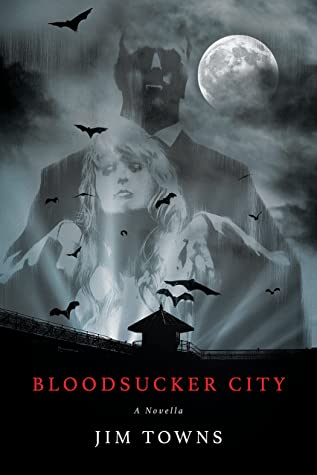
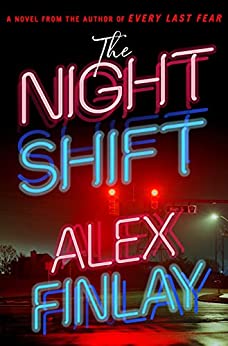
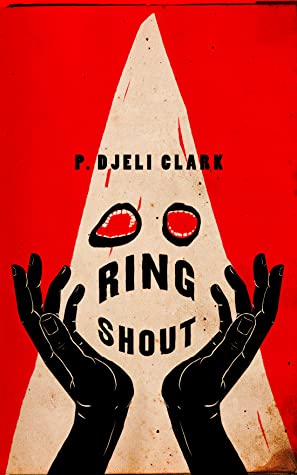
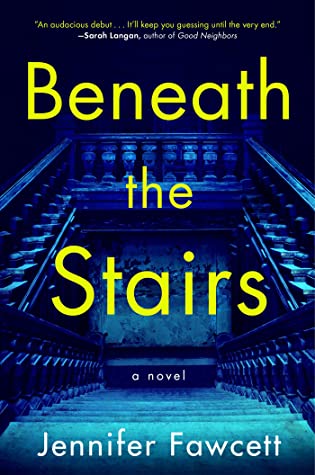
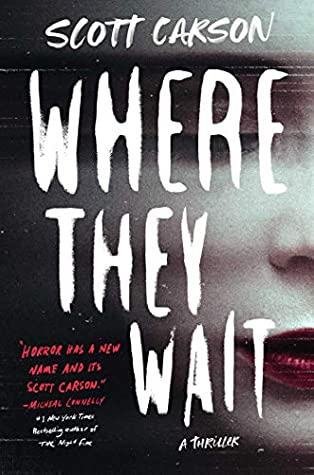
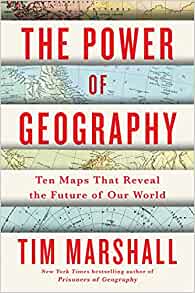
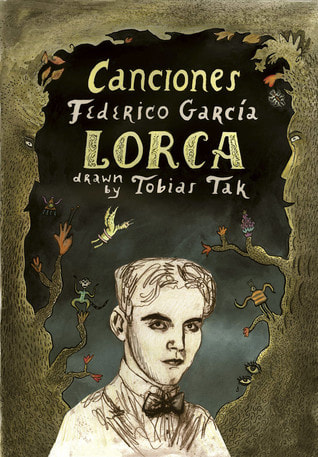
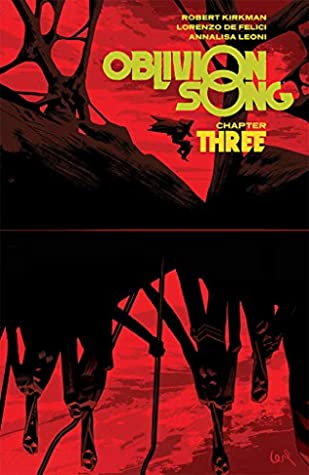
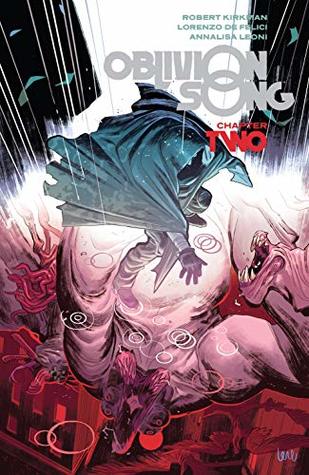
 RSS Feed
RSS Feed
